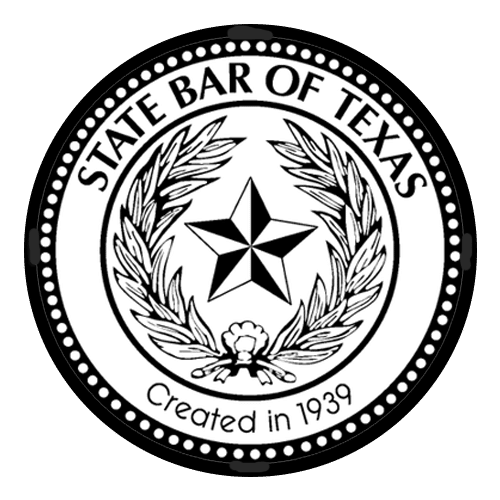
How to Divide Property Fairly in Texas Divorces
Ensure equitable asset distribution in divorce. Reach out to Audu Law Firm today at 832-780-9005 for a Free





Iowa Colony, Texas, a small but growing community in Brazoria County, has a unique history that intertwines with the importance of guardianship cases. Founded in 1908 by the Immigration Land Company of Des Moines, Iowa, this city was initially established as an agricultural community. As the population has grown and diversified over the years, so too have the legal needs of its residents, particularly in the realm of guardianship. Guardianship cases in Iowa Colony, like many other areas, involve the legal process of appointing a guardian to make decisions for individuals who are unable to care for themselves due to age, illness, or disability. These cases are crucial for ensuring the well-being and protection of vulnerable members of the community, reflecting the city’s strong sense of care and responsibility for its residents.
The significance of guardianship cases in Iowa Colony has increased as the city has experienced rapid growth in recent years. With a population that has more than doubled since 2010, the need for experienced legal guidance in matters of guardianship has become more pressing. Whether it’s for elderly residents requiring assistance with financial and healthcare decisions, or for children who have lost their parents, guardianship cases play a vital role in maintaining the fabric of Iowa Colony’s close-knit community. If you’re facing a guardianship situation in Iowa Colony, it’s crucial to seek expert legal advice. At Audu Law Firm, we understand the unique challenges and emotions involved in these cases. Our team is committed to providing personalized service and leveraging our extensive experience to guide you through the process with compassion and professionalism. Don’t navigate this complex legal terrain alone – call us at 832-780-9005 to schedule a consultation and discover how we can help protect your loved ones and ensure their best interests are served.
Guardianship cases play a crucial role in safeguarding the well-being of individuals who are unable to care for themselves. This legal arrangement provides a structured framework for ensuring that vulnerable persons receive the attention, support, and protection they need. By appointing a responsible guardian, the court establishes a system of oversight that prioritizes the best interests of the ward. This benefit is particularly significant for elderly individuals with cognitive decline, adults with disabilities, or minors without capable parents. The guardian assumes the responsibility of making important decisions regarding healthcare, living arrangements, and financial matters, effectively acting as an advocate for the ward’s rights and needs. This level of care and protection not only enhances the quality of life for the ward but also provides peace of mind for family members and loved ones.
One of the key advantages of guardianship cases is the preservation and management of the ward’s financial resources. A court-appointed guardian is entrusted with the responsibility of overseeing the ward’s assets, ensuring that their financial interests are protected and properly managed. This includes making prudent investment decisions, paying bills, and preventing financial exploitation. For individuals who lack the capacity to handle their own finances, this benefit is invaluable in maintaining long-term financial stability and preventing the depletion of assets. The guardian’s fiduciary duty to act in the ward’s best interest provides an additional layer of security, as they are legally obligated to make financial decisions that prioritize the ward’s well-being. This careful stewardship of resources can help secure the ward’s future and ensure that their needs are met throughout their lifetime.
Guardianship cases offer a significant advantage in facilitating access to essential services and support systems for individuals who may otherwise struggle to obtain them. A guardian serves as a vital link between the ward and various service providers, including healthcare professionals, educational institutions, and social services agencies. This coordination ensures that the ward receives appropriate medical care, educational opportunities, and social support tailored to their specific needs. Moreover, guardians can advocate for the ward’s rights and interests in legal and administrative proceedings, ensuring their voice is heard and their needs are addressed. This comprehensive approach to care and support can dramatically improve the ward’s quality of life and promote their overall well-being. If you or a loved one are considering guardianship, our experienced team at Audu Law Firm is here to guide you through the process. Contact us today for a personalized consultation and let us help you navigate this important legal matter with compassion and expertise.
When You Might Need Guardianship Cases
Guardianship cases arise in various situations where an individual is unable to make important decisions for themselves due to age, illness, or disability. These cases often involve minors who have lost their parents, elderly individuals suffering from dementia or Alzheimer’s disease, or adults with severe developmental disabilities. In such circumstances, a court may appoint a guardian to make crucial decisions regarding the person’s health, finances, and overall well-being.
For families facing these challenging situations, navigating the legal complexities of guardianship can be overwhelming. Whether you’re considering becoming a guardian for a loved one or need assistance in establishing guardianship for a family member, seeking professional legal guidance is crucial. Our experienced attorneys understand the nuances of Texas guardianship laws and can provide personalized support throughout the process. We’re committed to ensuring the best interests of both the guardian and the protected person are upheld. Don’t hesitate to reach out for a consultation – our team is here to offer compassionate, expert assistance tailored to your unique circumstances.
When it comes to guardianship cases in Iowa Colony, clients consistently turn to Audu Law Firm for their exceptional legal services. Despite not having a physical office in Iowa Colony, this respected firm has built a strong reputation throughout the Houston area, including Iowa Colony, for their expertise in family law matters. Clients appreciate the firm’s commitment to providing personalized attention and tailored legal strategies, regardless of their location. The experienced attorneys at Audu Law Firm understand the unique challenges and emotional complexities involved in guardianship cases, offering compassionate guidance and robust legal representation to ensure the best interests of vulnerable individuals are protected.
What sets Audu Law Firm apart is their comprehensive approach to guardianship cases. They not only navigate the legal intricacies but also take the time to understand each client’s specific situation, family dynamics, and long-term goals. This holistic perspective allows them to craft innovative solutions that address both immediate concerns and future implications. With a track record of successful outcomes and a commitment to staying abreast of the latest legal developments, Audu Law Firm has earned the trust of Iowa Colony residents seeking reliable guardianship representation. If you’re facing a guardianship matter in Iowa Colony, don’t hesitate to reach out to Audu Law Firm for a consultation. Their team is ready to provide the expert guidance and dedicated support you need to navigate this challenging process with confidence and peace of mind.


Guardianship Cases Attorney






Audu Law Firm

Ensure equitable asset distribution in divorce. Reach out to Audu Law Firm today at 832-780-9005 for a Free

Gain protection and work authorization with a U visa. Reach out to Audu Law Firm today at 832-780-9005

Build relocation-friendly custody agreements. Reach out to Audu Law Firm today at 832-780-9005 for a Free Case Consultation.
"*" indicates required fields